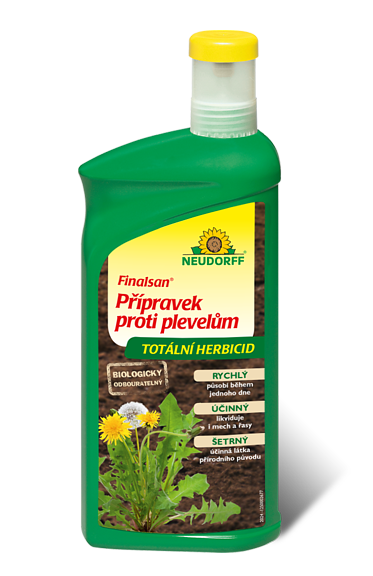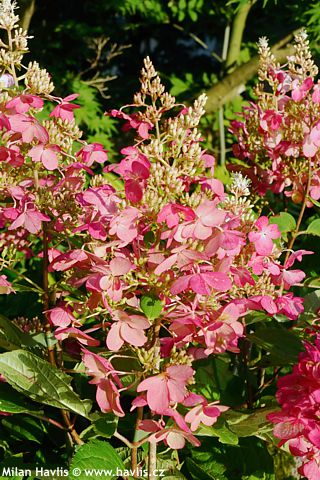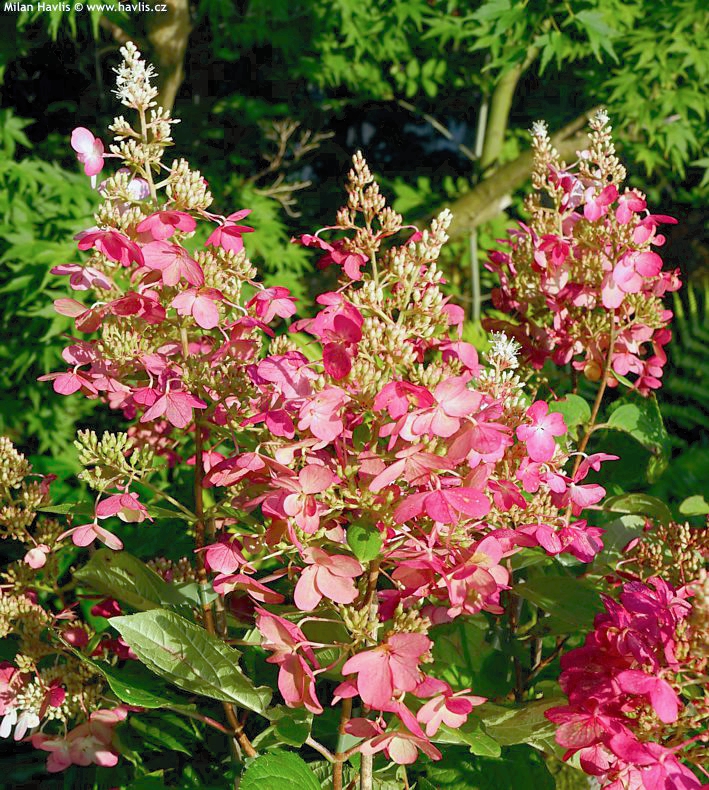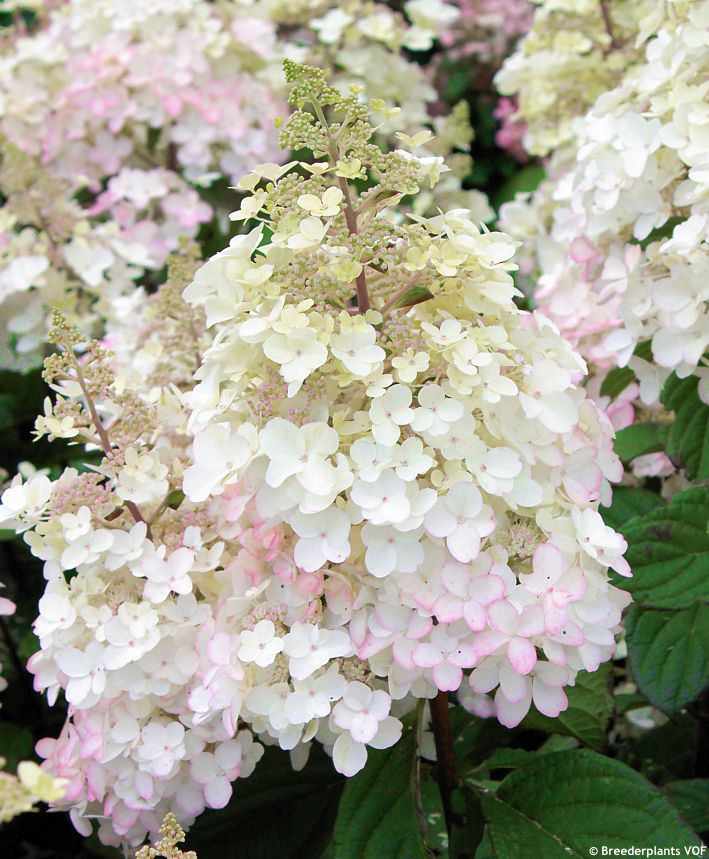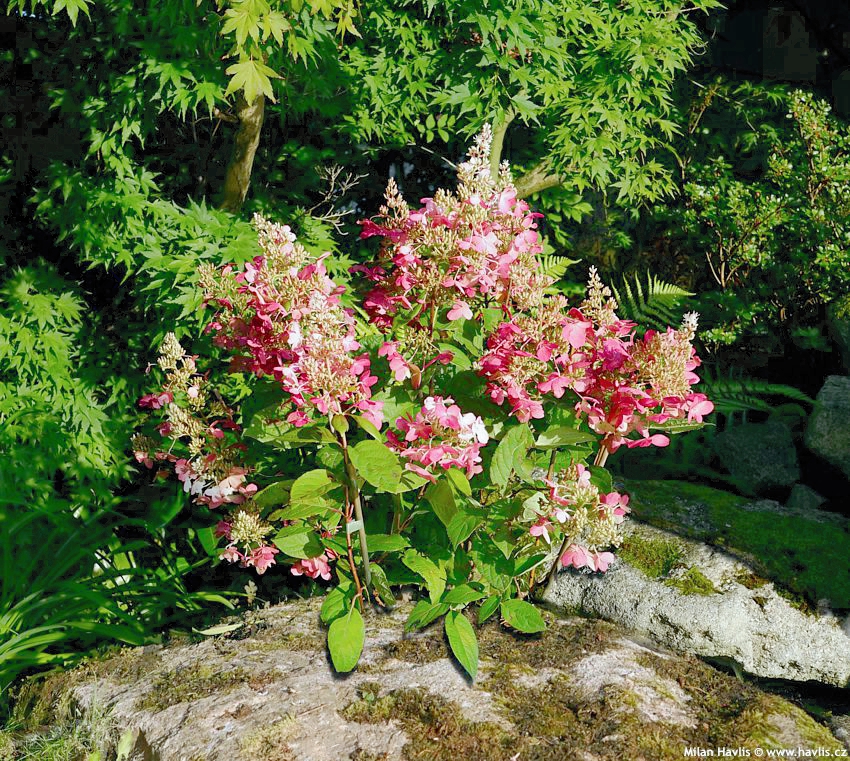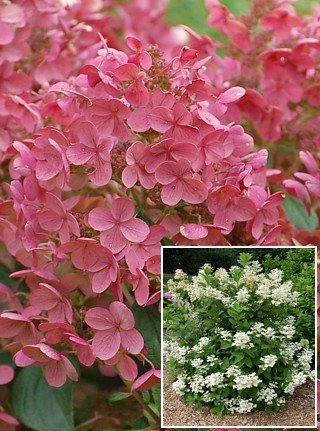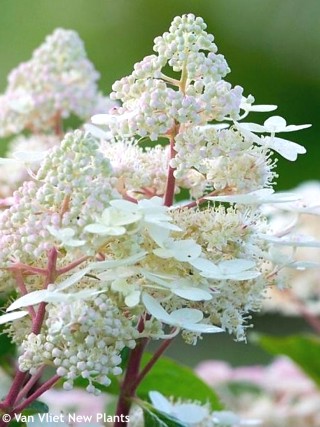Hydrangea 'Lissjudy' PETITE LANTERN panicle hydrangea
Hydrangea
Every summer, before we get the nursery offers for panicle hydrangeas, I wonder if we will see something new that will surprise me. One might say what more can be achieved in this field. And you know what? Every year there is something new and great. It is unbelievable that such a common flowering shrub can bring up new features that will differenciate it from the existing varieties. This time we will take a close look at the attractive Petite® series which was put together and is represented on the market by Breederplants from the Netherlands. It contains a few varieties, bred by more than one breeder, of low to dwarf growth with profuse flowering.
PETITE LANTERN is a low and compact growing panicle hydrangea from Liss Forest Nursery in Hampshire, England. It is a beautiful piece that bears firm, upright, pointed inflorescences composed of both sterile (large) and fertile (small) flowers. They begin to bloom in early July atop ruby red, sturdy stems 60-80 cm tall. They are bright creamy white as they emrge but soon turn a bold shade of pink that deepens to dark crimson purple in early autumn to live up to their name 'Little Lantern'. The deciduous leaves are oval, finely serrated at margins, medium green and the stalks are rich red just like the stems. Plants are dense and stems do not require support.
Thanks to smaller size and compact habit the plant is also less demanding as far as root system which makes the varieties from the Petite® series ideal for growing in large planters. It will make strong branches and large flowers if you prune it regularly every spring before the buds begin to swell (March). Remove as much as 90% of previous year’s growth. Panicle hydrangeas bloom on new wood so despite the name panicle do not panic that you might lose the flowers. European plant patent for PETITE LANTERN was applied for in 2019.
It will grow in almost any soil type, preferably humus-rich, moist soil that will not be too heavy or shallow. Once established it does not need extra watering like big-leaf hydrangeas. Full sun is best but it will grow in part shade, too. Feeding is much recommended to enhance flower size. Plants are hardy to at least -34 °C (USDA zone 4) and suitable for outdoor planters.
Last update 22-08-2022






























